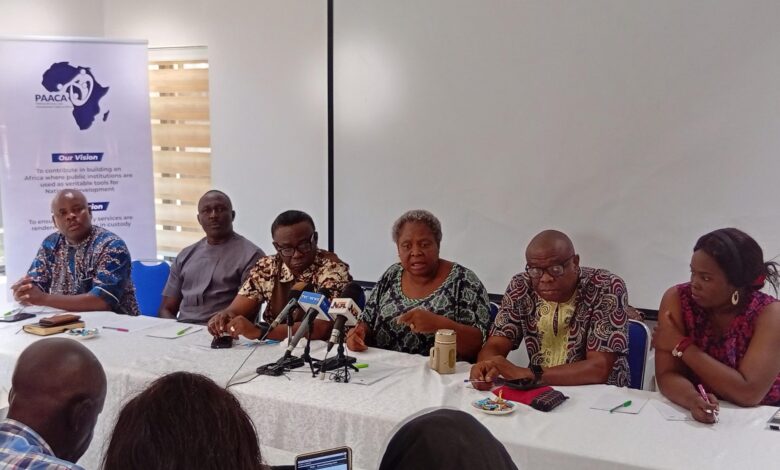
The Peering Advocacy and Advancement Centre in Africa (PAACA) has told the Federal Government to suspend or outrightly reject the proposed imposition of a 15 per cent import tariff on petrol (PMS) and diesel.
PAACA Executive Director Ezenwa Nwagwu told reporters in Abuja that the policy would eliminate competition, increase fuel prices, and concentrate monopoly control in the hands of a single private refinery.
Nwagwu argued that by taxing imported fuel at this critical stage, the government risks creating artificial scarcity, causing inflation, and undermining deregulation, which was meant to open, not close, the market.
“Our call today is straightforward. The Federal Government must suspend or reject the proposed tariff, expose and correct its economic, social, and ethical flaws, and educate the public on the dangers of monopolies in vital sectors like fuel, cement, and food,” he stated.
“Above all, it must promote transparency and fair competition to protect consumers, workers, and small businesses across the country.”
He added that the Dangote Refinery currently meets only about 40 per cent of national fuel demand, pointing out that restricting imports now will not stabilise supply, but create scarcity.
Furthermore, he demanded that the government should publicly disclose all refinery supply agreements with marketers to ensure fair access and direct the Nigerian Midstream and Downstream Petroleum Regulatory Authority (NMDPRA) to publish monthly data on refinery output, import volumes, and landed costs to promote transparency.
“In the medium term, a downstream competition framework should be established within the Petroleum Industry Act (PIA) to prevent monopolistic pricing, alongside an Energy Market Monitoring Unit under the Federal Competition and Consumer Protection Commission (FCCPC) to track market concentration and anti-competitive behaviour.
“In the long run, the government must invest in logistics and port efficiency to reduce transport and import costs for all market participants, not just one, while promoting citizen oversight and open data in petroleum pricing and distribution.
“Our message is simple: protect competition, protect Nigerians. Monopolies breed scarcity and inequality.
“Efficiency, not sympathy, should define our industrial policies — a $20 billion refinery should not need protection from competition to survive. True energy security comes from choice — the more refineries and suppliers we have, the stronger and safer our nation will be.
“Above all, the government must always put people over profit. Its loyalty must be to citizens, not corporations.
“If the government truly believes in the Renewed Hope Agenda, then it must listen to the people. Protect competition. Uphold fairness. And most importantly, stop this tariff. Nigerians deserve energy justice, not monopoly power,” he added.




